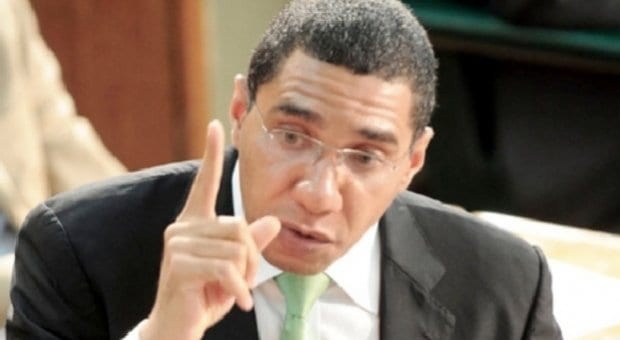Jamaica’s opposition leader told Prime Minister Portia Simpson-Miller that she could resolve uncertainty over a number of issues, like the promised review of the country’s buggery law, by putting them to a referendum, the Jamaica Observer reports.
“Prime Minister, there is great uncertainty in the LGBT community and ordinary Jamaicans alike about your promise to review the Buggery Act,” Andrew Holness told Simpson-Miller during debate over the country’s budget April 24. “The issue is very sensitive, of course. I am sure you will agree that more Jamaicans, in general, and interest groups are more open to discussion on the matter. A way to finally bring some certainty to the matter would be to put it to the people,” he suggested.
After raising the possibility of a review of the country’s buggery law during a 2011 televised election debate, Simpson-Miller recently declined to give media a specific time frame for addressing the issue. “We have to go to our constituents, consult our constituents, and then we go with the decisions of those consultations,” Portia Simpson-Miller said in a TVJ report.
In response to further questioning, Simpson-Miller suggests that a review of the legislation is not a priority now, saying, “I can’t tell you when, because you are going to hold me [to it] if I give you a timeline.”
In the 2011 election debate, Holness avoided a question about whether he shared the view of former prime minister Bruce Golding, who said gays were not welcome in his cabinet.
Holness replied, “The challenge that Jamaica faces is that in the modern world there are minimum standards of human rights which we must meet — and Jamaica has done so on all occasions. However, as a society, we have to determine what our civil rights are, which is slightly different.”
He added, “We are an open society, and the issues that are difficult, uncomfortable to discuss, as the society progresses, these issues are being discussed. People are entitled to their opinion, as well as I am entitled to mine, but as leader of the country, I have to respect everybody’s opinion and make sure that the institutions of freedom are well in place so that the debate can continue.”
In her response to the same question, Simpson-Miller said she wouldn’t have a problem with gay people serving in her administration and would appoint someone gay if that person was right for the job. She also said her party believes that the human rights of all Jamaicans should be protected and that no one should be discriminated against based on their sexual orientation.
She also suggested a vote of conscience on the buggery law by MPs, in consultation with their constituents.
Speaking with Xtra a few months after Simpson-Miller made the comment, Jamaican gay rights activist Maurice Tomlinson expressed wariness about a conscience vote on the law, even as he found it to be a “landmark” suggestion.
“It’s an unfortunate development for the simple reason that you are then subjecting the rights of a minority to the will of a majority, because [Simpson-Miller] said the conscience vote would be based on dialogue with parliamentarians’ constituents. Research we did [in 2011] showed that over 80-something percent of Jamaicans self-identify as homophobic, and a similar percentage did not want the law to be changed, so to subject it to a conscience vote, which is based on dialogue with constituents, will confirm and perhaps reinforce the homophobic policy and give it legitimacy.”


 Why you can trust Xtra
Why you can trust Xtra


